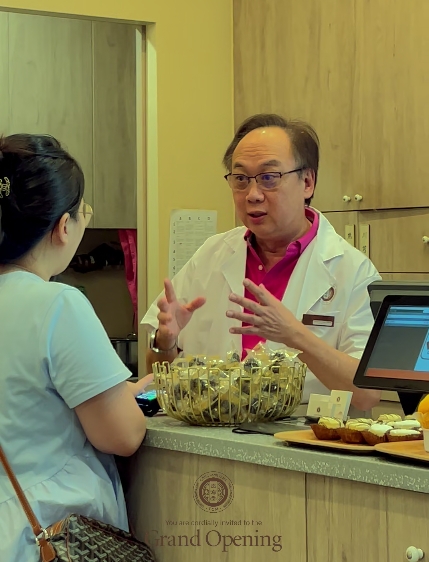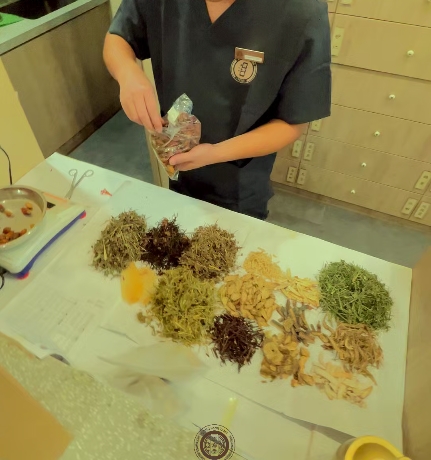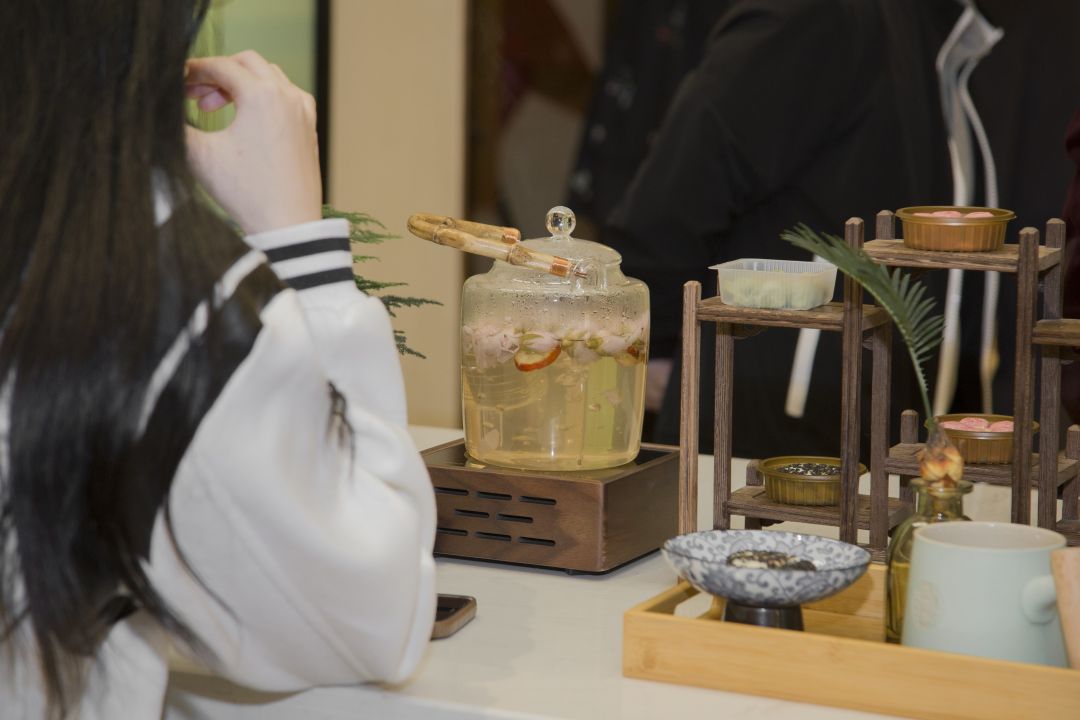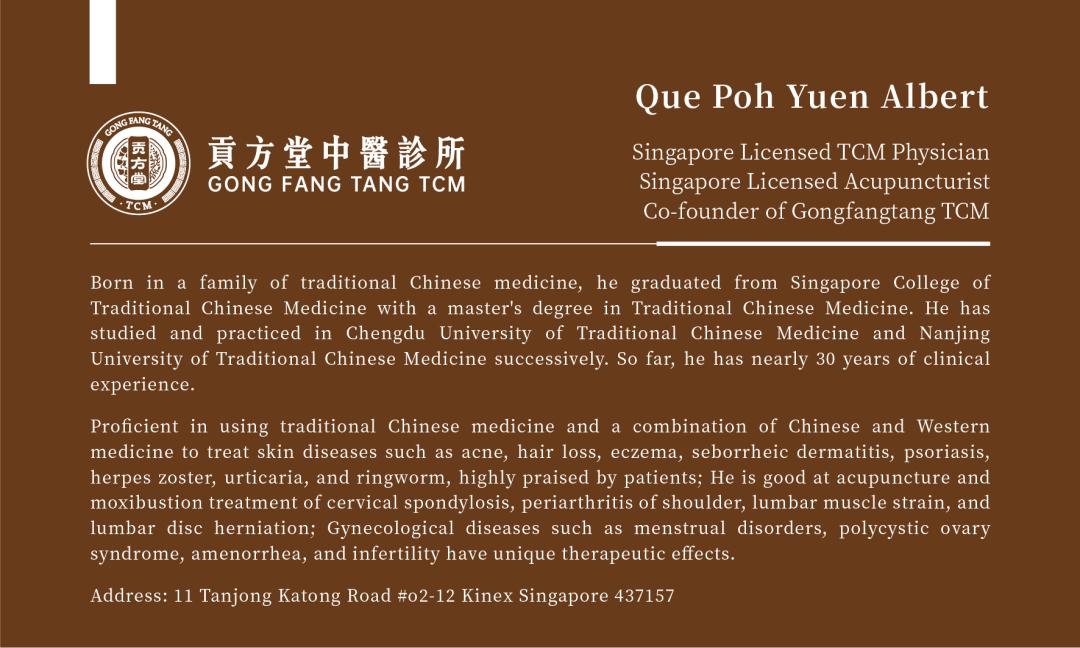Modern health screenings increasingly reveal higher detection rates of thyroid nodules, breast nodules, lung nodules, and other similar conditions. Traditional Chinese Medicine (TCM) categorizes nodules as "phlegm-nodes" (痰核, tán hé) or "goiter-tumors" (瘿瘤, yǐng liú), attributing their formation to the congealing interplay of Qi stagnation (气滞), phlegm coagulation (痰凝), and blood stasis (血瘀).

Dr. Qiu Baorun, TCM Physician at Singapore Kung Fong Tong TCM, states: "Nodules are the body's signal of imbalance. Excessive stress, emotional depression, dietary irregularities, or constitutional disharmony lead to dysfunction of the internal organs, obstructing the flow of Qi, blood, and body fluids. Over time, these accumulate and form nodules."
TCM Pattern Differentiation: Identifying the True Cause of Nodule Formation
Dr. Qiu Baorun emphasizes that precise pattern differentiation is key to treatment:
Liver Qi Stagnation Type (肝郁气滞型): Emotional distress, distending pain in the chest/ribs, nodules fluctuate with mood.
Spleen Deficiency with Phlegm Coagulation Type (脾虚痰凝型): Fatigue, loose stools, thick greasy tongue coating; common in phlegm-damp constitutions.
Blood Stasis Obstructing Collaterals Type (血瘀阻络型): Fixed stabbing pain, tongue with purple spots; often seen in prolonged cases.
Yin Deficiency with Fire Flaring Type (阴虚火旺型): Five-center heat (palms, soles, chest), insomnia, dry mouth; nodules prone to inflammation.

Multi-Dimensional Therapy to Soften Hardness and Dissolve Nodules
1. Herbal Internal Regulation · Targeted Nodule Resolution
Dr. Qiu skillfully adapts classical formulas in clinical practice:
Liver Qi Stagnation: Xiaoyao Powder (逍遥散) to soothe the liver and regulate Qi.
Phlegm Coagulation & Blood Stasis: Haizao Yuhu Decoction (海藻玉壶汤) to transform phlegm and dissipate nodules.
Severe Blood Stasis: Combined with Guizhi Fuling Pill (桂枝茯苓丸) to invigorate blood and unblock collaterals.
Yin Deficiency: Assisted by Xiaoluo Pill (消瘰丸) to nourish yin and subdue fire.
2. External Therapies & Medicinal Penetration · Direct Delivery to the Affected Site
Acupoint Application (穴位贴敷): Apply phlegm-dissolving, nodule-softening paste to Fenglong (ST40), Qimen (LR14), and Ashi (tender) points.
Acupuncture to Unblock Collaterals (针灸通络): Stimulate Taichong (LR3), Zusanli (ST36), and Danzhong (CV17) to regulate Qi movement.
Therapeutic Massage & Daoyin (推拿导引): Channel-specific point pressure combined with breathing techniques to unblock Liver and Spleen meridians.
3. Lifestyle Adjustments to Prevent Recurrence
Dr. Qiu specifically advises:
Avoid "Hair" foods like seafood and grilled meats.
Sleep before 11 PM to support Liver channel detoxification.
Tap underarms & ribcage 300 times daily to disperse Liver Qi.

Case Study
Patient: Female, 38, corporate executive.
Initial Visit: Thyroid nodules with swelling, sensation of throat constriction, irritability, frequent anger outbursts, hypochondriac distending pain, palpable hard nodule in throat.
TCM Diagnosis: Thyroid Nodules (Liver Qi Stagnation & Phlegm-Damp Coagulation)
Treatment Principle: Move Qi to relieve stagnation, Transform phlegm to dissipate nodules.
Prescription: Modified Banxia Houpo Decoction (半夏厚朴汤) plus Si Ni Powder (四逆散)
Ingredients: Pinellia (Banxia), Magnolia Bark (Houpo), Poria (Fuling), Fresh Ginger (Shengjiang), Perilla Leaf (Zisuye), Honey-fried Licorice (Zhigancao), Immature Bitter Orange (Zhishi), Bupleurum (Chaihu), White Peony (Baishao), Oyster Shell (Muli), Scrophularia (Xuanshen), Fritillaria (Zhebeimu), Selfheal Spike (Xiakucao), Cat's Claw Vine (Miaozhaocao).
Second Visit (After 4 doses): Throat obstruction sensation resolved, breathing smooth. Continued with 10 more doses for consolidation. All symptoms eliminated post-treatment.

Important: TCM emphasizes pattern differentiation and individualized treatment. Herbal formulas, dosages, and modifications must be prescribed by a qualified TCM practitioner after personal consultation. Never self-medicate.